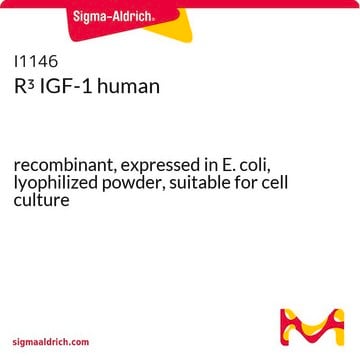G6392
L-Glutamine
γ-irradiated, BioXtra, suitable for cell culture
Synonym(s):
(S)-2,5-Diamino-5-oxopentanoic acid, L-Glutamic acid 5-amide, Levoglutamide
About This Item
Recommended Products
Quality Level
sterility
γ-irradiated
product line
BioXtra
form
powder
packaging
vial of 0.292 g
technique(s)
cell culture | mammalian: suitable
impurities
endotoxin, tested
color
white to faint yellow
mp
185 °C (dec.) (lit.)
solubility
H2O: 10 mL/vial, clear to slightly hazy
SMILES string
N[C@@H](CCC(N)=O)C(O)=O
InChI
1S/C5H10N2O3/c6-3(5(9)10)1-2-4(7)8/h3H,1-2,6H2,(H2,7,8)(H,9,10)/t3-/m0/s1
InChI key
ZDXPYRJPNDTMRX-VKHMYHEASA-N
Gene Information
rat ... Ggt1(116568)
Looking for similar products? Visit Product Comparison Guide
Application
- for cochlear organotypic culturing
- in Iscove′s modified Dulbecco′s medium for HeLa cells culturing
- in Dulbecco′s modified Eagle′s medium for primary hepatocyte cell culturing
Biochem/physiol Actions
Packaging
Suitability
Reconstitution
Other Notes
Application
Storage Class Code
11 - Combustible Solids
WGK
WGK 1
Flash Point(F)
Not applicable
Flash Point(C)
Not applicable
Personal Protective Equipment
Choose from one of the most recent versions:
Certificates of Analysis (COA)
Don't see the Right Version?
If you require a particular version, you can look up a specific certificate by the Lot or Batch number.
Already Own This Product?
Find documentation for the products that you have recently purchased in the Document Library.
Customers Also Viewed
Chromatograms
application for HPLCapplication for HPLCOur team of scientists has experience in all areas of research including Life Science, Material Science, Chemical Synthesis, Chromatography, Analytical and many others.
Contact Technical Service





